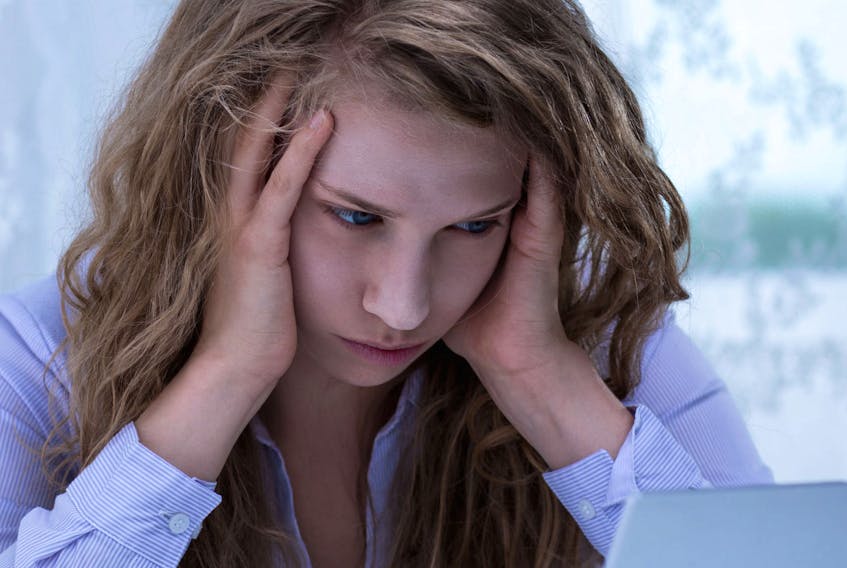In a pair of Instagram photos, a teenage girl models a new wig. The photos have 5,843 likes, but many of the comments are scathing.
“Uh, no, she look a mess.”
“Her hair always ugly, ain’t nothing new.”
“She ain’t even cute.”
You can see why, if you’re trying out a new look and seeking positive affirmation, those critiques might be cutting.
And that’s another reason why social media can have negative effects on mental health.
Related column:
In my Feb. 24 column, I wrote about how teens — and adults, for that matter — can feel pressure to compete with and mirror the seemingly perfect lives they see depicted on social media. Let’s face it, many people who post photos to Twitter and Facebook attempt to show themselves at their best — relaxing on the beach, posing in front of some exotic landmark, primped for the prom, or even taking a picture-perfect Thanksgiving turkey out of the oven in an impeccably spotless kitchen.
Of course, these images are carefully curated, with all of life’s real messiness and imperfection cropped out. Some people even go so far as to tinker with their social media images using software — slimming arms, plumping lips or pumping up muscles and whitening teeth in an effort to look the way they’re told they’re supposed to.
It’s hard enough on young psyches to be surrounded by that, but when others get to actively comment on your posts and photos, that’s when added damage can be done.
In a 2016 blog for Huffington Post, “Here’s why social media harms your teen’s mental health,” McGill University assistant professor of psychiatry Dr. Robert Whitley writes that some active users of social media regularly post photos and videos of themselves online in order to solicit feedback and (hopefully) positive affirmation from others.
“In psychology, this is known as searching for external validation. Elsewhere, it is sometimes known as ‘fishing for likes,’” Whitley writes.
Of course, there are nasty people out there, and “likes” are not always what those posts elicit.
“Let’s not forget that social media is in many respects anti-social,” Whitley writes.
“Some research indicates that feeling compelled to portray a ‘my fun-filled life’ version of reality can come at a severe psychological cost. It can be very damaging to a young person’s self-esteem if posts and photos receive few likes or comments. The whole process may lead young people to question their value to others, sometimes resulting in an unhealthy self-scrutiny of body image, physical appearance and general lifestyle. This can lead to self-doubt and self-loathing.”
A person’s self-worth can even be influenced by social media strangers, whose opinions should carry no weight at all. And yet the desire for approval can be so strong, particularly among the young and emotionally immature, that the negative effects are very real.
American author Nancy Jo Sales, in her book “American Girls: Social Media and the Secret Lives of Teenagers,” interviewed an 18-year-old from Beverly Hills who said she came to the realization that social media was turning her into someone she didn’t particularly like.
“…It can make you jealous of what someone else’s life is like,” the teen said. “It seemed so icky. I try to stay off it now because it’s not a real representation of your life.”
Sales says teens who came of age in the infancy of social media found themselves thrust into the spotlight as unwitting pioneers. And not all brave new worlds are friendly.
Sales is writing about girls, but her observations can apply to many teens and pre-teens.
“At a time in their lives when girls are just trying to discover who they are, for them to then feel pressured into creating an impossibly ‘perfect’ self online, disconnected from reality, seems, again, a very unhealthy if not damaging activity,” she writes.
Perhaps we need to remind our children that online “likes” and “shares” of posts and photos are completely meaningless measures when it comes to self-worth, and that the affection, friendship and respect of the real people in our lives means so much more.
Pam Frampton is The Telegram’s associate managing editor. Email [email protected]. Twitter: pam_frampton









